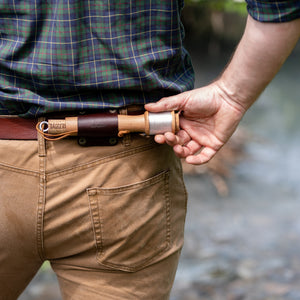Car Camping Essentials : All The Car Camping Gear You'll Need For Your Trip
If you’re a beginner car camper, it can be difficult to know where to begin. Browsing through basic camping gear can feel very overwhelming, especially with the amount of options available. What should you prioritize? What’s considered essential and compared to what is more optional? We’re here to help you answer these basic car camping equipment questions. Here’s a definitive list of everything you need for car camping.
Car Camping Essentials
Car camping is an accessible and simple way to enjoy the great outdoors. Backpacking can be an incredible experience, but it requires a lot of preparation and survival skills. It’s sometimes nice to go on a camping trip that doesn’t require a lot of energy or restricted resources. Once you have all the essentials, you’ll only ever need to bring yourself to the campsite.
If you’re just starting out, car camping can appear to be just as overwhelming as preparing for a backpacking trip. In reality, gathering all the essentials is the hardest and most expensive part. Once you’ve purchased all your gear for car camping, you can organize it however you want and only replace items that break or supplies that need to be restocked.
Car Camping Gear
Shelter and Sleeping
- Tent: Your choice of tent is going to greatly depend on preference and how many people come along on your adventures. If you're a backpacker and a car camper, it’s best to select a tent that works for both activities. The average car camper should be fine with a 2-3 person tent.
- Sleeping Bag: A sleeping bag is arguably one of the most important camping items, primarily because it keeps you warm. Although they tend to be expensive, it’s much better to invest in a high quality sleeping bag that will keep you warm and last a long time.
- Sleeping Pad or Air Mattress: Beginners commonly fail to understand the importance of a good sleeping pad. It increases comfort and can help you stay warm. Sleeping pads are convenient for packing, while air mattresses are more comfortable but take up a lot of space.
- Pillow: If you’re a well rounded camper, you can use the same inflatable pillow that you’d use for backpacking trips. Otherwise, you can simply bring one along from home for increased comfort.
Car Camping Kitchen
- Cooler: A cooler can be very convenient for perishable items and storing cold drinks.
- Stove and Fuel: Most campsites include fire pits, but certain locations occasionally have fire bans. Thus, it’s always a good idea to have a backup stove available. Traditional propane gas should work fine with any camp stove.
- Water Storage: In case you’ll be in an area without access to clean drinking water, fill up a 2-gallon water tank before leaving home.
- Pots and Pans: For making food. A separate camping set is recommended for those who don’t want to ruin nicer pots and pans from home.
- Dishware: Plates, cups, mugs, bowls, and a thermos. Try to find dishware that doubles as a bowl and a plate for added convenience.
- Utensils: For cooking and eating (i.e. knives, forks, and spoons).
- Camp Kitchen Set: These convenient sets provide everything you need for a car camping kitchen: collapsible whisk, spatula, spicer, cutting board, scrubber, scraper, condiment containers, and a towel.
- Refillable Water Bottle: To stay hydrated, especially if you’re hiking during the day.



















